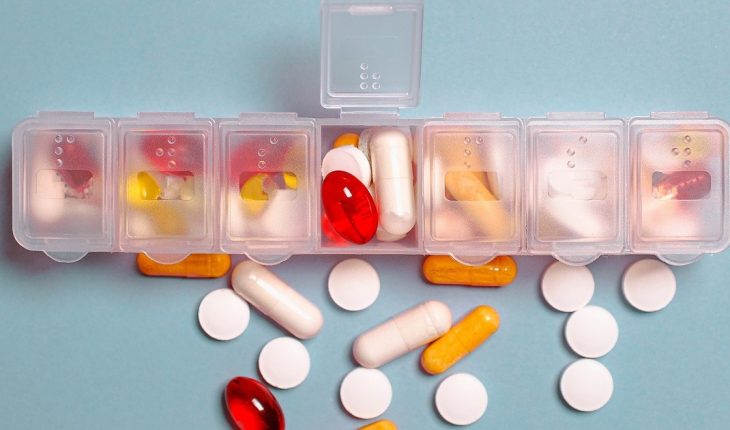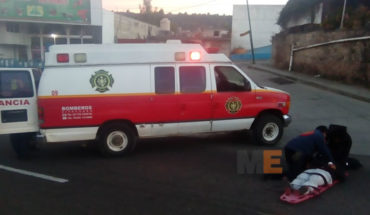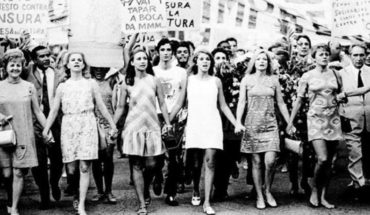With the progressive development of clinical trials that resulted not in one but several vaccines approved to prevent Covid-19 disease, the inconvenience of not being able to apply them to everyone at the same time became apparent. Since our country, like other countries in the world, initially began to receive a limited number of them, a vaccination plan was then organized that would be carried out in stages and with some groups with priority over others according to exposure to the disease, the strategic functions they have or the risks they present. It was then started with staff from public and private health facilities, adults over the age of 60 and those living in geriatric establishments, Armed Forces, Security and prison staff; to finally reach adults with risk factors — diabetic people, with grade 2 and 3 obesity, and those with chronic cardiovascular, kidney or respiratory diseases. Different was the situation of transplanted and/or immunocompromised patients , such as people with HIV/AIDS – who do not yet have the possibility to register except in the province of Buenos Aires and who, like those previously named, are more at risk if they contract Covid-19, of complications and more mortality; and for whom, moreover, the types of vaccines that are being applied in the country do not have contraindications.
“When vaccines begin to enter our country—and the world—we begin to see what we do with these populations. Until January this year the International Transplant Society, to which all countries are affiliated, publishes a document advising the vaccinating of transplants,” explains Dr. Hugo Petrone, Director of Public Transplant Unit Networks at CUCAIBA.What is it based on? The doctor explains that there is no experience with patients of these characteristics, but emphasizes that the platforms with which vaccines have been made are safe for this group. “Transplants cannot be vaccinated with those that are with attenuated viruses or live viruses, because they have the lowest defenses and if you inoculate them with a live virus, they can replicate and end up infecting it. Now, because most developing vaccines are not based on attenuated or live viruses, transplants are safe.” On immunocompromised people, José María Di Bello, president of the Positive Effect Group Foundation (GEP Foundation) working for health sovereignty and access to the health of people living with HIV/AIDS , who are between two and three times at risk of death or to develop a serious picture because of COVID-19, describes a similar situation: “The United Nations, particularly UNAIDS, which is the United Nations Agency for HIV, on 12 January this year published on its website that vaccines were safe.” He adds that later, in mid-February, the Ministry of Health confirmed that vaccines have no contraindications for this population, although it argued that those with HIV who were within the established priority groups would receive the vaccine, “now we had to have this comorability or be older adults or work on health.” We have changed the rules of the game and are claiming, but this claim also settles on what we consider, beyond the increased risk of having HIV, which in Argentina and other countries around the world, the situation has been very difficult.”
“We have had to take to the streets for lack of treatment — many people with HIV have had to interrupt them — particularly in the last two years of macrism and it took time to resolve that issue, there were no reagents for viral load and CD4, so there are people who don’t know if their treatment is working,” he says.” In the middle of the pandemic. The pandemic meant that many people did not come to pharmacies and hospitals to seek their treatment, they were not follow-up: we usually have other comorities, sometimes not even for HIV but for treatment, the people who are in treatment a long time ago have some cardiovascular, liver, and we do not have control of that either.” Di Bello further explains that 70% of people with HIV are treated in the public health system, which in other words means that 70% of people with HIV have no registered work. “That has to do with something historical that is discrimination, that continues to be forced testing in the care analysis, so it is increasingdifficulty getting a job; and at some point this was somehow alleviated by non-contributory pensions for vulnerable people with HIV, but during macrism those pensions were not handed over and even to people who had them withdrew them.” “So the social situation of vulnerability, lack of access to health, still further aggravates that picture of increased risk to developing a serious Covid disease or even reaching death.” And it is for all these reasons that we made a request last week to the Minister of Health, we are waiting for an answer — already a week and we have not received an answer – asking that we be re-included in groups with risk factors.”
As Di Bello, María Elena and Leonardo Basualdo, both renal transplants, do, they demand care from their place from compromised patients. Maria Elena, after seven years of waiting in hemodialysis, explains that being a transplanted and immunocompromised person the first thing that Argerich Hospital did, where it is attended, was to send her a protocol through a group of whatsapp where she said that being a risk group should “isolate and extreme care and controls”. “With regard to the arrival of the vaccine, like the rest of the population, we saw this news as a very encouraging hope to put an end to this pandemic. And we were also waiting for registration to be enabled for the immunosuppressed population, people with transplantation, who were not first contemplated.”
Until the first week of March, registration did not enable people who had received a transplant to be noted.
Basualdo, for his part, adds that he continues to take medication, specifically immunosuppressants that generate, on the one hand, the adaptability of the transplanted organ to the body and, on the other hand, a large decrease in the body’s defenses.” I want to get vaccinated, first because my doctor authorized me to. At first, when we didn’t have much information about the vaccine, if I was afraid. And not just for me, because now I have a family to carry: a wife, a newborn child; and more than anything for that. For a fear not only of my own but for the family, but now I have the decision to get vaccinated,” he says.
Leonardo Basualdo and his family.
Dr Petrone further explains that solid organ transplants — kidney, liver, heart, lungs, instentino — have to wait at least one month from the time of transplantation to get vaccinated; while bone marrow transplants should wait three months from transplantation if there is no very high viral circulation, and six months if viral circulation is very high. “That’s why we recommend that you always talk to your family doctor.” “The issue with the vaccine [de virus inactivados o porciones de virus] it’s not that I’m going to do wrong, it’s not that I’m going to get sick; the problem with the vaccine in transplants is that low defenses generate fewer antibodies. You vacun and you don’t get the amount of antibodies you need.” That is closely related to the level of immunosuppression, and since the maximum immunosuppression is during the first month in solid organ transplants, and the first few months in bone marrow transplants, it is discouraged that they are vaccinated there because the effectiveness of that vaccination is going to be very bad.” Therefore, he argues, it is time for the immune system to recover a little and react to vaccination. Another thing not less, he adds, is that transplants—actually all but they in particular—have to keep up with the alarm level and level of care no matter how much they are vaccinated, because there is one thing that is certain: we do not know how long the effectiveness of the vaccine lasts. Finally, it places particular emphasis that those who live with transplants should also be vaccinated. “We advise, especially when vaccines are more available or when they are already completed, that the converts are vaccinated.” “And I tell you this because, because the vaccine is not mandatory, there are people who don’t want to get vaccinated, they have doubts. So our advice is to vaccinate everyone, because the only way to get herd immunity is to vaccinate at least 80% of the population. Second, the converts of the transplanted, by their relative, who are empused. The day they can, the day they touch them, they’ll be empused.”
The phases of the vaccination plan in Argentina.
José María Di Bello, who asks to add immunocompromised people to risk groups, closes by saying that this would be nothing more or nothing less than being, according to the vaccination plan, in phase 5. “In most countries of the world that are hiv-positive people are in the groups prioritized precisely in this group, in the group with risk factors, along with diabetes, with people with COPD, with people with obesity… So we ask for this, equal judgment with the rest of the world.” From the Directorate of HIV Response, Hepatitis, Tuberculosis and Sexually Transmitted Infections, what we were told at the last two meetings we had was that they as a direction accompany our position and have elevated to the authorities of the Ministry the request that they include us and that we be within the priority populations for phase 5.” We understand that there is a review, or at least a dialogue about it, and we are hopeful that we are being heard, but we are still doing a lot of pressure from different networks.”





